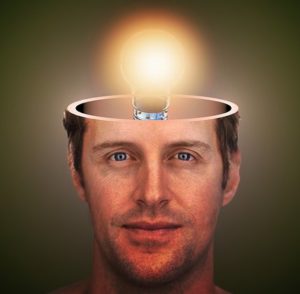Psychology has always been a source of many widespread myths, and we believe in many of them even today. However, the time has come to debunk some of these popular psychology myths once and for all.
1. We use only 10% of our brains

When the movie Limitless came out, people were obsessed with the notion that we use just a small percent of our brain power and that there are ways in which you can unlock the full power of the brain and all of its possibilities. In the movie, the guy uses his “whole” brain to learn new languages in a matter of minutes, and become a math genius. This idea probably comes from the people who misunderstood the American psychologist William James who once said that we rarely achieve more than 10% of our intellectual potentials.
Who would have known this would turn into such a huge myth.
2. Shock therapy is cruel
This is another myth that probably stems from movies and popular media. We immediately imagine someone in a straightjacket getting fried by electricity until their brain turns to mush. This cannot be far from the truth. Described like this, you would think shock therapy is used as a torturing device when it is in fact simply a form of therapy. For more than 50 years, scientists have been using shock therapy to help people, and it is always performed under certain conditions. First of all, the patient receives an anesthetic and the shocks are not strong enough to damage the brain in any way.
3. Opposites attract

Although this might be true in physics, chemistry, and other sciences, psychology disagrees – opposites do not attract when it comes to people. Movies and books might be the source of this myth as well since this is one of the most popular themes in romantic comedies and romances in general.
However, in real life, we won’t be attracted to someone just because they are polar opposite from us. At least that is what psychologists believe.
4. Dreams are symbolic
Now, it is difficult to say exactly why we dream the things that we dream, or why we dream at all since this is not as easily explained as some other aspects of our beings. However, the standpoint of the majority of psychologists is that there is nothing symbolical in the meanings of our dreams. They believe that while we sleep, our brain uses that time to sort through our memories and experiences and some of them get presented to us in the form of a dream. That is why dreams are usually very chaotic and confusing. Although this makes sense, you should keep in mind that the scientists are still mostly guessing, and we still have no concrete answers.
5. Classical music can make your child a genius

After one study published in 1993, The Mozart Effect was born. Misinformation spread and people started believing that playing classical music to babies, namely Mozart, will make them geniuses.
This, unfortunately, is nothing more than a myth, and no other study was able to replicate those results.



